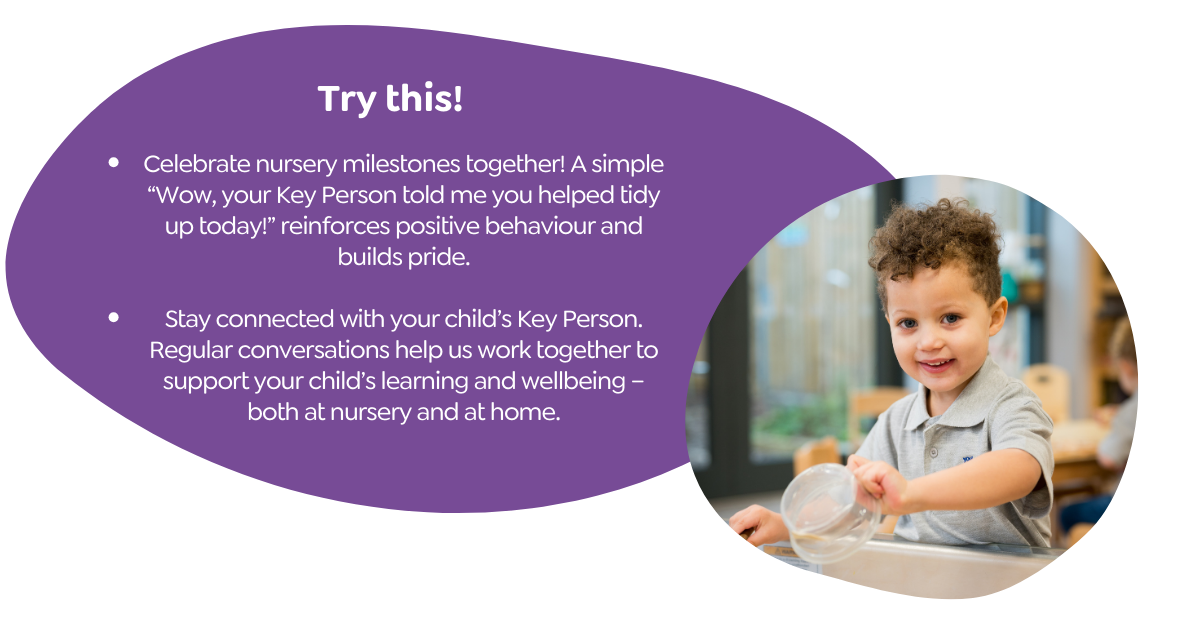Our Key Person Approach
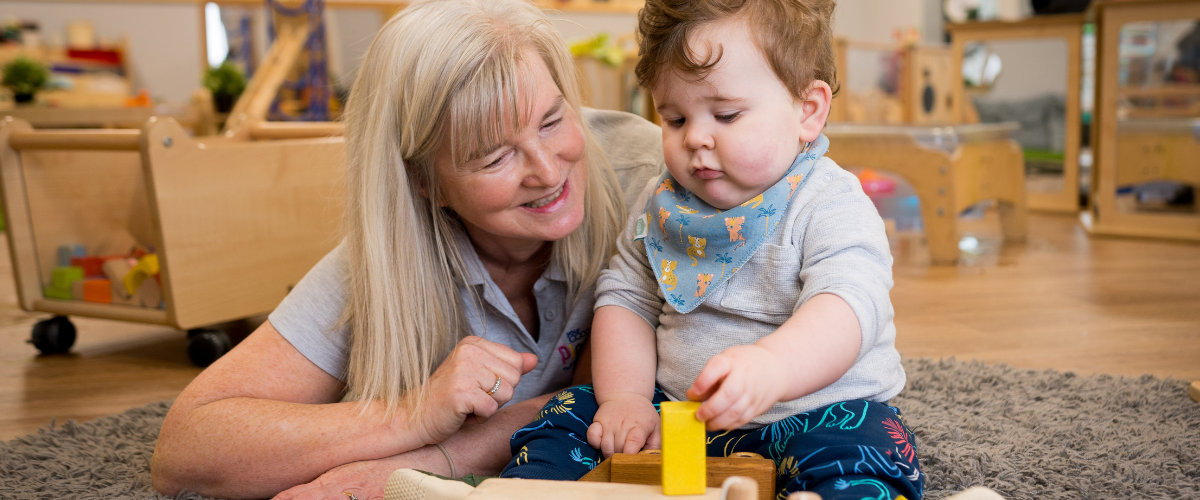
We understand how important the early years are in shaping your child’s future. That’s why our approach is rooted in creating secure, loving relationships through our Key Person Approach, and by building and maintaining strong partnerships with parents.
Every child in our nursery is assigned a dedicated Key Person - a nurturing practitioner who takes the time to really get to know them. This consistent relationship helps your child feel safe, secure, and confident in their new environment.
What does a Key Person do?
-
Gathers in-depth information about your child – their likes, dislikes, developmental stage, and their favourite toys.
-
Observes and responds to your child’s needs and preferences.
-
Provides consistent, loving care and support.
-
Builds a trusting relationship to help your child feel emotionally secure.
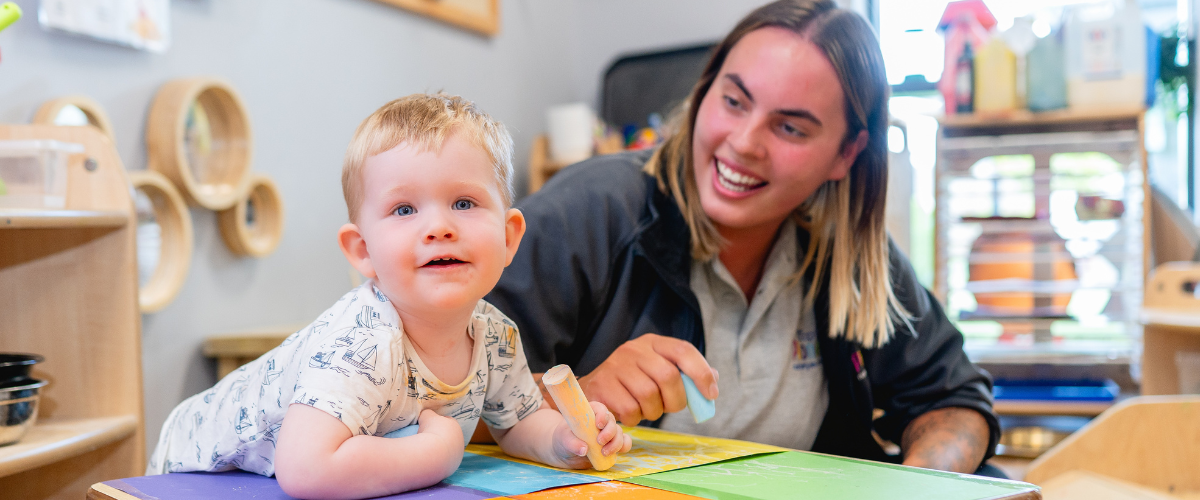
Key Person approach for Babies
Why it matters
Research in child development consistently shows that secure attachments - the strong, trusting bonds babies form with familiar, caring adults - are essential for emotional well-being and lifelong learning. These early relationships shape how children see the world and how they relate to others.
When babies feel safe, loved, and understood, they’re more likely to:
Explore their environment with confidence
A secure attachment gives babies the emotional safety they need to be curious and adventurous. When they know someone they trust is nearby, they feel brave enough to try new things, play, and learn through exploration.
Form positive relationships
Babies who experience consistent, loving care learn how to build healthy relationships. They begin to understand trust, empathy, and communication - all through their early interactions.
Develop confidence and resilience
Secure attachments help babies build a strong sense of self-worth. When their needs are met consistently and lovingly, they learn that they are valued and capable. This foundation helps them bounce back from challenges and adapt to new situations.
What you can do at home
Talk positively about nursery and their Key Person.
Your baby may not understand every word, but they pick up on your tone and emotions. Speaking warmly about nursery and their Key Person helps build a sense of trust and familiarity.
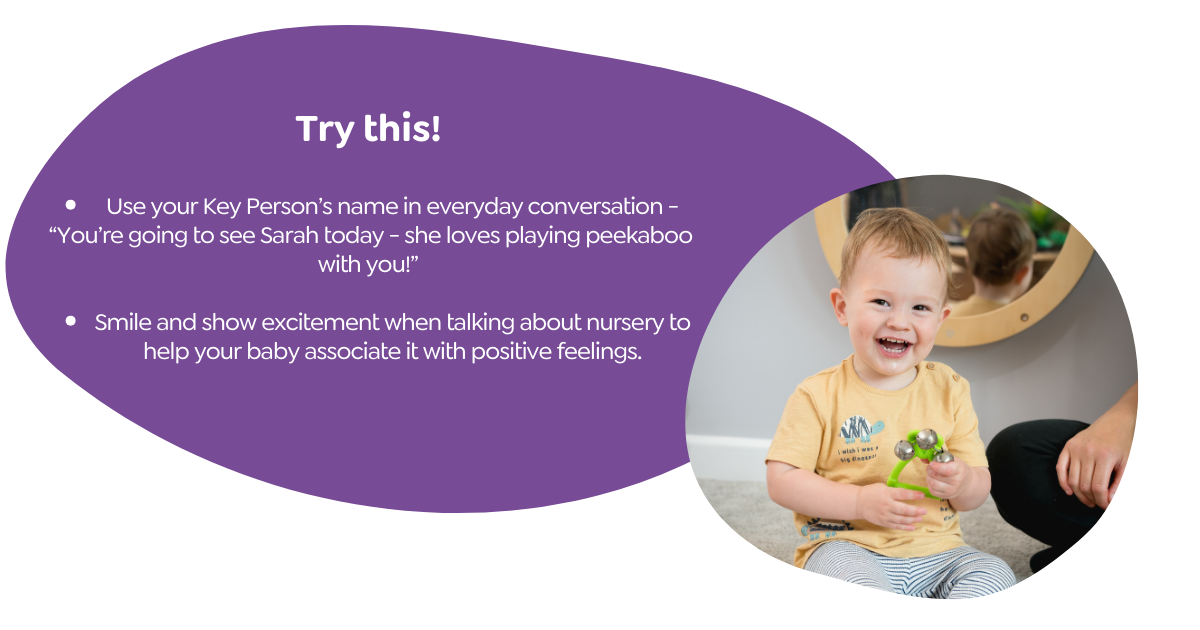
Key Person approach for 2-3s
Why it matters
Toddlers are learning how to manage emotions, build relationships, and assert their independence. A secure bond with their Key Person provides the emotional anchor they need during this exciting (and sometimes challenging!) phase.
Your child's key worker will support your child in managing big emotions like frustration or excitement, gently encourage independence by guiding them through new experiences, and tailor activities to suit their unique developmental needs.
When toddlers feel safe and supported, they’re more likely to:
Communicate confidently
Knowing they’re listened to and understood encourages language development and self-expression. For example, when a toddler points to a toy and says, “Car!”, their Key Person might respond, “Yes, that’s a red car. Would you like to play with it?” - reinforcing vocabulary and showing the child their voice matters.
Build friendships
With a trusted adult nearby, toddlers feel more confident engaging with peers and learning social skills. A Key Person might gently encourage sharing by saying, “Let’s take turns with the blocks - first you, then your friend,” helping toddlers navigate early social interactions.
Explore with purpose
Secure relationships give toddlers the courage to try new activities, solve problems, and develop resilience. For instance, when a child hesitates to climb a small structure, the Key Person might say, “I’ll be right here while you try,” offering reassurance and promoting independence.
What you can do at home
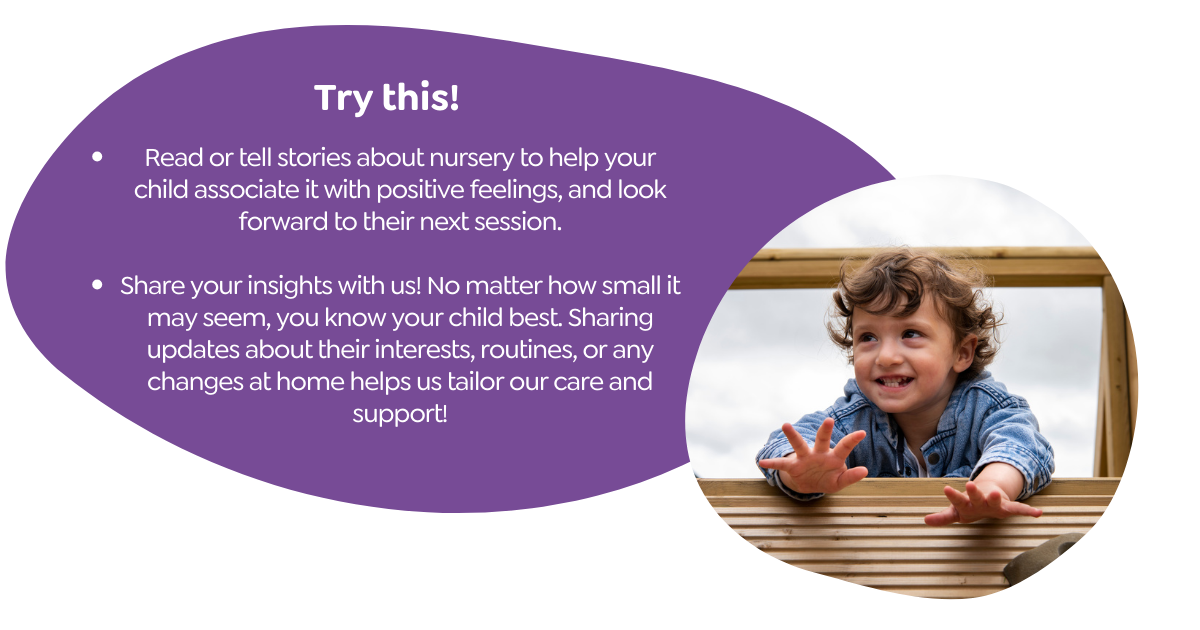
Key Person approach for Pre-school
Why it matters
The preschool years are a time of rapid development and growing independence. A strong relationship with a Key Person gives your child the confidence to explore, ask questions, and take on new responsibilities. This secure foundation helps them feel emotionally ready for the transition to school.
When pre-schoolers feel supported and understood, they’re more likely to:
Engage deeply in learning
They feel safe to take risks and express their ideas. For example, during a group project, a Key Person might say, “That’s an interesting idea - let’s try it and see what happens,” encouraging the child to think creatively and take initiative.
Build strong peer relationships
With guidance from a trusted adult who models positive social behaviour. A Key Person might support a child in resolving a disagreement by saying, “Let’s listen to each other and find a way to play together,” helping them develop empathy and cooperation.
Develop a love of learning
Through play-based experiences tailored to their interests and developmental stage. For instance, if a child is fascinated by bugs, the Key Person might set up a mini nature exploration area, sparking curiosity and sustained engagement.
What you can do at home
